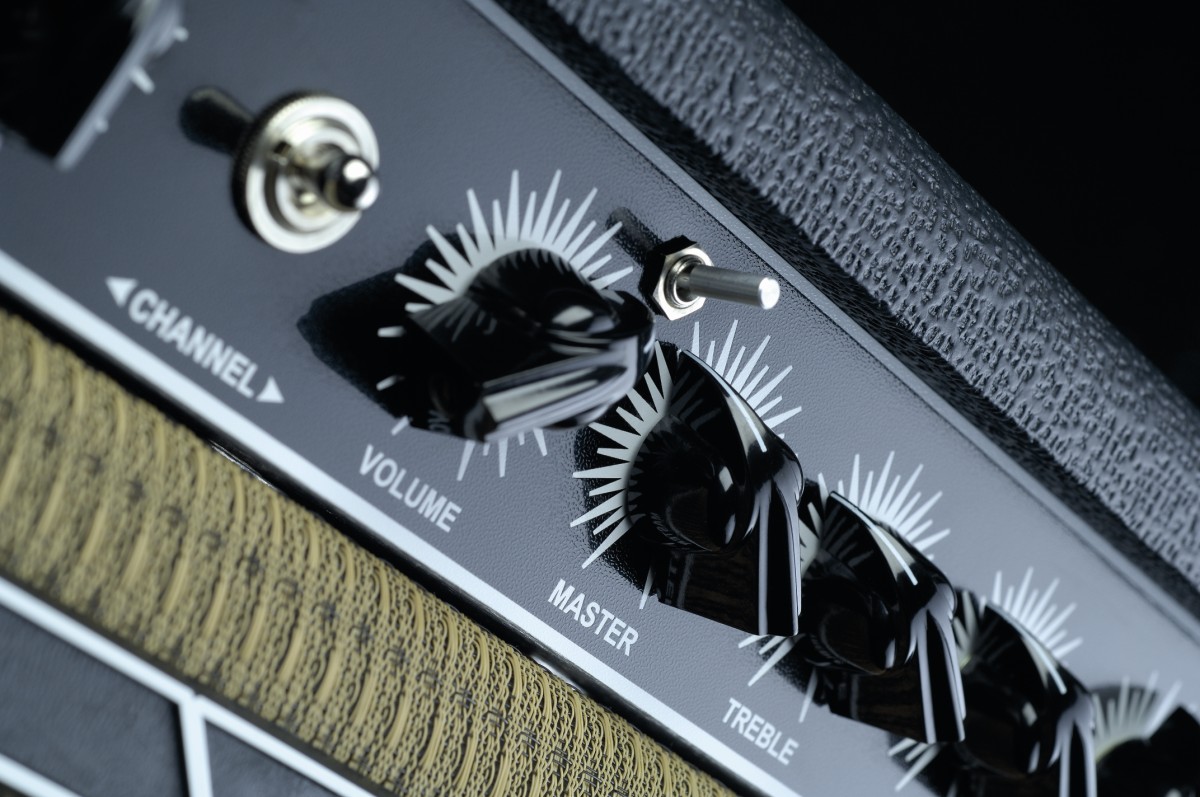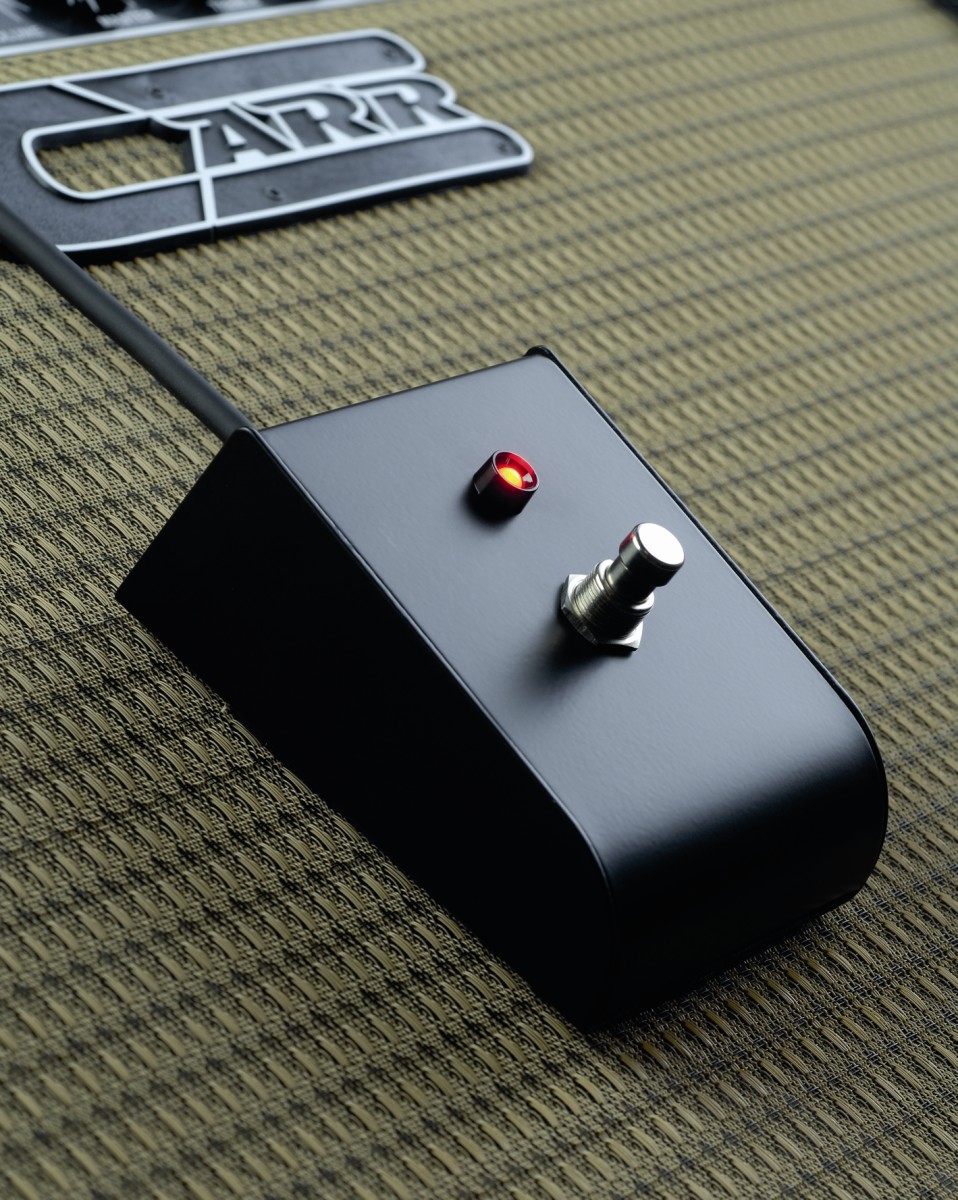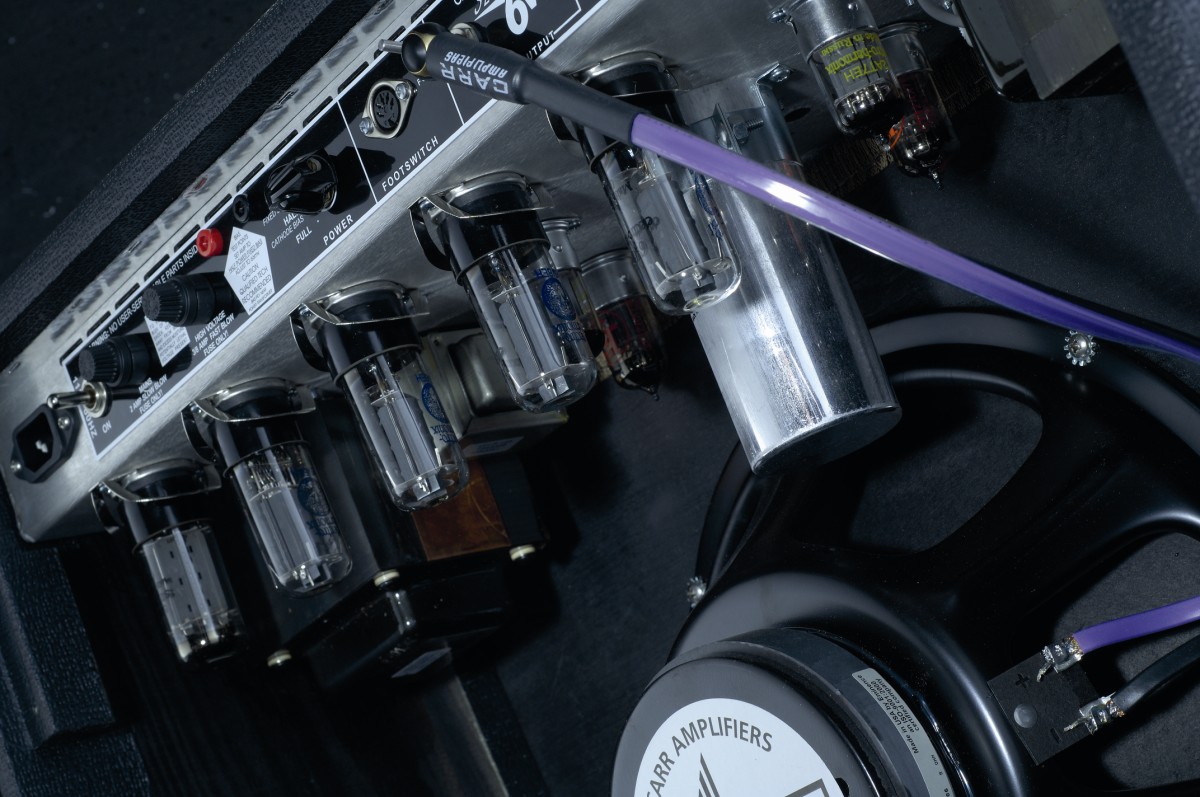MusicRadar Verdict
Even at this price, it's very good value and will carry on sounding this great for decades.
Pros
- +
Mind-blowing tone and response. Neat and portable.
Cons
- -
Impossible to fault, even at this price.
MusicRadar's got your back

Carr's amps are built to the highest quality.


North Carolina's Steve Carr is steadily building up a reputation for some of the best-sounding and best-made guitar amps on the planet.
After his superb Mercury single-ended combo comes this Slant 6V, named with a pun in mind. "The tubes are 6V6s and there was a well-known car engine called the Slant 6, which was fabled to run forever.
They were in Falcons and Dusters over in the US back in the '60s," Carr explains. "Two of my favourite amps at the time I started work on the Slant 6V were a 1964 blackface Fender Deluxe Reverb and an early '70s Marshall JMP 50 non-master volume head.
I'd spent a lot of time modifying them and hoped to bring the best features from both designs together in a unique package. I'm sure this is the same idea many amp builders start with, as these are archetypal amps."
From a distance, the Carr is a neatly proportioned, if somewhat plain-looking, combo. Move closer, though, and the attention to detail elevates it way above the ordinary. The cabinet is solid pine with dovetailed corners, covered in thick Tolex and built like a vintage Chevy pickup truck: to last.
Like all Carr amps, the Slant 6V utilises pure point-to-point construction, which is to say you won't find any kind of circuit board inside the aluminium chassis. All the internal components are joined to each other, or one of several tag strips.
This is very demanding for a production amplifier because everything has to be precisely placed and every amp has to be tweaked until it sounds right - which is time-consuming and unavoidably expensive. Steve Carr blends this 1940s-style construction with some ultra-modern, audiophile-grade components, including polypropylene Solen capacitors instead of electrolytics - and not just for show: every part of the amp, from the type of wire to the chassis material to the resistors, changes the sound and the feel.
Want all the hottest music and gear news, reviews, deals, features and more, direct to your inbox? Sign up here.
"Over the years I've developed an affinity for certain components which I now use in all my designs," says Carr, "it's the combination that's meaningful.
The Solens are very expensive compared to electrolytics but they impart a clear, uncongested sound while staying warm. I love them, and in our amps they're worth the expense."
The Slant 6V's two preamp channels feed a clever power stage based around four 6V6s. There are two half-power settings: one pair of valves is cathode-biased, while the other is fixed bias. You can select either from a rear panel switch, or run both at the same time.
Other refinements include a boost switch on the lead channel and a series effects loop with a bypass switch. The front panel layout is very straightforward, with chicken-head knobs over Carr's distinctive starburst-effect dial, making it easy to dial in precise control settings.
The Slant 6V comes in several options. Our review model is the stock version, featuring reverb on the clean channel only. "I like the stock version with dry overdrive", says Steve. "It's a little punchier and I tend to add just a touch of echo with a pedal on overdrive tones.
Also, it's important to know the two preamps are totally discrete with no shared parts or tubes until they meet at the output section.
Switching is through a high quality relay, with no solid-state parts to run your guitar signal through. The gain boost toggle switch on the overdrive channel can also be made to footswitch. You'd then have a two-button footswitch and a versatile two-and-a-half channel amp set-up."
Sounds
Most people will go straight to the high gain stuff when they plug in, and miss out on the Slant 6V's clean channel.
Well, imagine the smoothest, most sparkling blackface Fender you've ever listened to - and then imagine something that makes it sound like a worn-out kazoo. That pretty much describes how good the Slant 6V can be.
With a little reverb the highs shimmer as though there's a phantom chorus pedal plugged in. The lows are tight and quick to respond, while the mid-range control is deceptively powerful, taking the Carr from blackface to tweed at higher settings, with a chiming distortion that'll make any roots or blues player think they've been summoned by the Almighty.
The lead channel is a similar surprise, because despite the Slant 6V's vintage guise there's a huge amount of front-end gain to play with.
At lower settings you'll find a great crunch and that Plexi-style 'brown' tone, but kick in the boost and you can shred to your heart's content with a Brit-inspired sound that stays sweet and pure even when run flat out.
But it's not just the quality of the tone. The way this amp responds and clings to each note is phenomenal.
Especially flattering to powerful single-coils like P-90s, the combination of Carr's Kingpin 60 loudspeaker and wide baffle cabinet packs a real punch in full-power mode, giving the impression that you're playing through a much bigger rig than a 1 x 12 combo.
The unusual power stage makes it easy to tailor power output for small or large gigs and dramatically alters the Carr's character.
"That output stage came out of excitement over the tight and punchy sounds of fixed bias, and cathode bias - warm with rich sustainy mids, but more diffuse," Carr explains. "It gives about the volume of a Deluxe Reverb in half power, or close to a Marshall 50 at full."
With users including Joe Perry, Nils Lofgren and Michael Landau, Carr is becoming one of the world's most sought-after amp names. And with tone and build quality this good, it's not surprising.